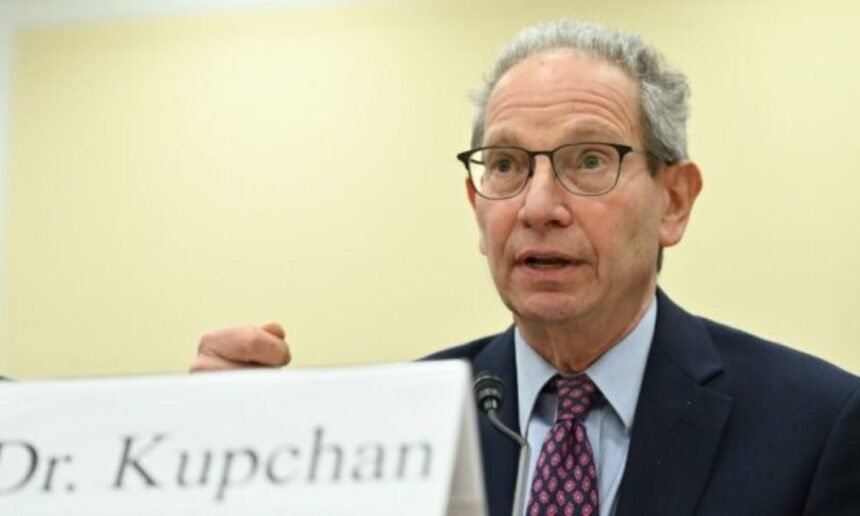Charles Kupchan from the Council on Foreign Relations in the U.S. has signaled a potential re-engagement by the United States in the Kosovo-Serbia dialogue in the coming months, possibly bringing the leaders of both countries to the Oval Office.
The former advisor to ex-President Barack Obama discussed potential developments in the Balkans and on the global stage. “In his first term, he made progress in connecting Kosovo and Serbia and with Israel’s recognition. Europe needs to consider leading this process. For its own security, and for the U.S. to be freer to focus on the Indo-Pacific. In the next 6-8 months, you will see a reduction in military presence in Europe. I think you will also see a re-engagement from Washington in the Kosovo-Serbia dialogue, and Trump bringing the leaders of the two countries to the Oval Office; Trump sees himself as a peacemaker,” Kupchan stated on “Off the Record” on A2 CNN.
Optimism for a “Difficult and Painful Compromise”
Kupchan expressed confidence in reaching a “difficult and painful compromise” – as he described it – for peace between the two countries. “We still have on the table a perspective that offers light at the end of the tunnel, and that is the agreement that EU negotiators and the parties agreed upon, although they did not sign it. But for now, we are in a difficult position without political stability in Belgrade and the same in Pristina.”
He believes that “the day will come, and not too far in time, when both countries will make the difficult and painful compromise to achieve peace.” Kupchan acknowledged that Kurti has made some mistakes during his mandate, taking actions that, while consistent with Kosovo’s right to sovereignty, “were provocative and led to steps backward in the dialogue.” However, he stressed that the responsibility is not solely Kosovo’s, as “the party that has been dragging its feet is Serbia.” He reiterated that “Belgrade and Pristina must make the difficult compromise.”
Balkan Integration into NATO and EU
Kupchan expressed optimism for the integration of the Balkans into NATO and the EU and does not foresee a return to large-scale conflicts. “We still have a lot of work to do in the Balkans. Pristina has undergone significant development, but relations with Serbia remain weak. In Bosnia and Herzegovina, the government remains divided along ethnic lines, Republika Srpska remains a difficult actor, Russia uses this space in Serbia to gain advantage from these gaps in the region.”
He concluded, “I do not expect a return to a large-scale conflict, but it is very important for the U.S. and the EU to lead and use diplomacy to push Pristina and Belgrade to move forward. There is still a lot of work to do, but I am optimistic about the final outcome. I predict the full integration of the Balkans into the EU and NATO.”







